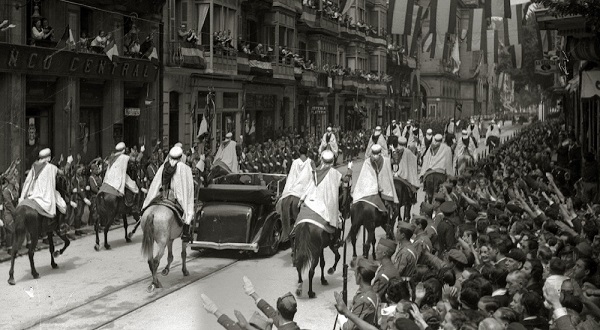Who would you trust more at CIA?
Monday, May 7th, 2018[ by Charles Cameron — seeking to emphasize what may be at base a spiritual / psychological question ]
.
First, the context, courtesy Washington Post:
Trump had signaled as a presidential candidate that he would consider reestablishing agency prisons and resuming interrogation methods that President Barack Obama had banned. Trump never followed through on that plan, which was opposed by senior members of his administration including Defense Secretary Jim Mattis.
Sen. John McCain (R-Ariz.), who was tortured while imprisoned in Vietnam, said Haspel’s Senate confirmation should be conditioned on securing a pledge to block any plan to reintroduce harsh interrogations. “Ms. Haspel needs to explain the nature and extent of her involvement in the CIA’s interrogation program,” McCain said.
Haspel ran one of the first CIA black sites, a compound in Thailand code-named “Cat’s Eye,” where al-Qaeda suspects Zayn al-Abidin Muhammed Hussein, better known as Abu Zubaida, and Abd al-Rahim al-Nashiri were subjected to waterboarding and other techniques in 2002.
An exhaustive Senate report on the program described the frightening toll inflicted. At one point, the report said, Zubaida was left “completely unresponsive, with bubbles rising through his open, full mouth.”
Internal CIA memos cited in a Senate report on the agency’s interrogation program described agency officials who witnessed the treatment as distraught and concerned about its legality. “Several on the team [were] profoundly affected,” one agency employee wrote, “.?.?. some to the point of tears and choking up.”
Haspel later served as chief of staff to the head of the agency’s Counterterrorism Center, Jose Rodriguez, when he ordered the destruction of dozens of videotapes made at the Thailand site.
Rodriguez wrote in his memoir that Haspel “drafted a cable” ordering the tapes’ destruction in 2005 as the program came under mounting public scrutiny and that he then “took a deep breath of weary satisfaction and hit Send.
**
In light of the above, who would you trust more?
Someone who has overseen torture, deeply regretted / repented of it (metanoia), and wouldn’t repeat the crime / error / sin / shame / pick your word and its accompanying implications under any circumstances — or someone who was against torture from the first?
As I understand it, Gina Haspel claims to fall in the former class, thought I’m not sure whether she views her earlier actions with regret and / or remorse — and these /// differences are important.
There’s little doubt that as an administrator of Agency business, she’d more than qualified, so our “only remaining question” is whether someone who once oversaw a black site (and destroyed potentially incriminating evidence) can be trusted never to permit CIA to practice torture, under whatever name or cover it may hide, ever again.
Does she regret / repent, or does she feign regret / repentance?
And would you expect a newspaper reporter or cable news pundit — indeed, anyone short of her confessor or Haspel herself — would know?
**
Once again, mortals must decide, and quickly — our continuing koan or paradox — while the most relevant information of all is tangled up in the knots of human psychology / hidden deep in the heart of God..














